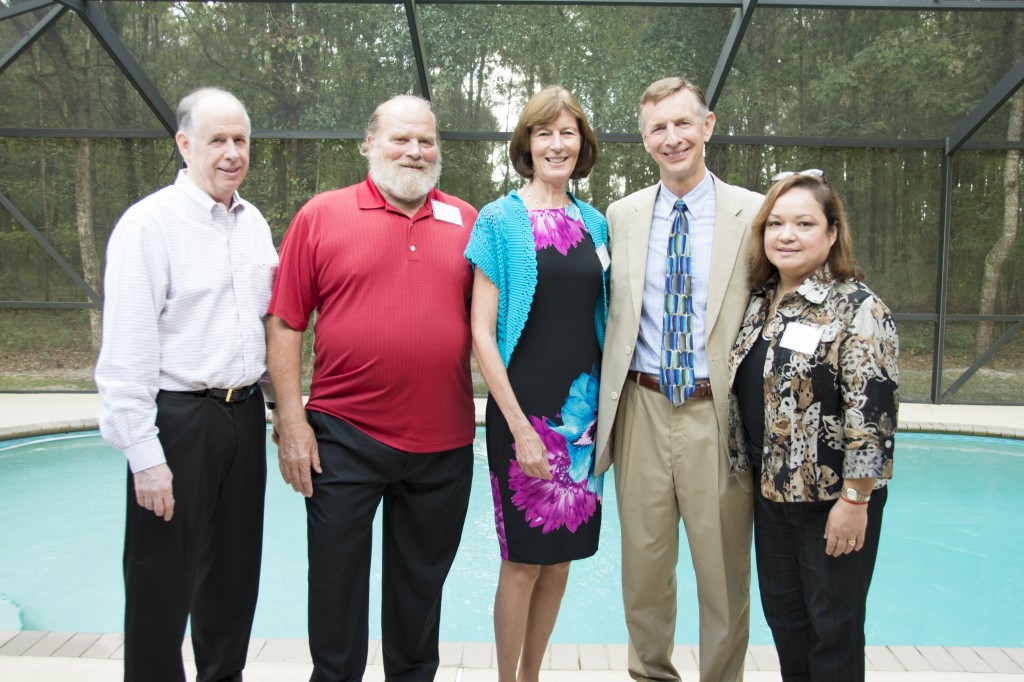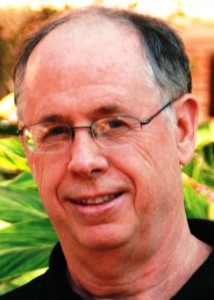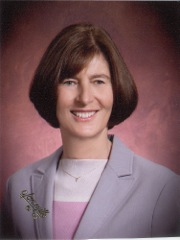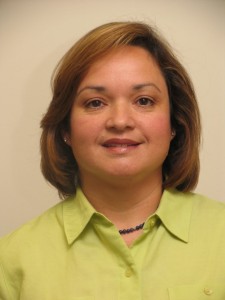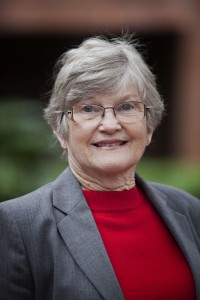UF awarded $3.5 million to help improve social, emotional behavior of schoolchildren

Ann Daunic, Stephen Smith, Nancy Corbett and James Algina
Ever since teachers have taught they have also had to manage the behavior of their students.
But in recent years primary grade teachers are reporting a spike in the number of young children who struggle to handle their emotions and regulate their behaviors – meaning more students have issues such as being unable to follow instructions, resorting to tantrums and arguing with peers.
Now, scholars from the University of Florida College of Education have begun research on a curriculum they hope will provide teachers and schools with new tools to improve the social and emotional “literacy” of the youngest schoolchildren.
The researchers recently received a $3.5 million federal grant to study the effectiveness of the Social-Emotional Learning Foundations (SELF) curriculum they developed through a previous pilot study.
Thousands of schoolchildren to participate
Approximately 1,400 students in kindergarten and first grade at 60 urban and rural elementary schools in Florida will participate in the project following a screening process to select students at risk for emotional and behavioral problems. In this first year, 20 schools in five school districts have signed on – in Baker, Bradford, Levy, Marion and Putnam counties. Twenty more as-yet-identified schools will participate in each of the subsequent two years.
“If these children don’t receive some support during this critical time they could develop more serious and chronic behavioral problems that will interfere with their future school success,” said Ann Daunic, scholar emeritus at the UF College of Education and principal investigator on the project.
“As a matter of fact, researchers have determined that social-emotional development is closely linked to future academic performance,” she said.
Co-principal investigators on the project – also from the UF College of Education – are: Nancy Corbett, assistant scholar in special education, Stephen Smith, professor of special education, and James Algina, professor emeritus of research and evaluation methodology.
The four-year study is funded by the Institute of Education Sciences, the research arm of the U.S. Department of Education.
Daunic said research shows that about 10 percent of students who receive special education services have been diagnosed with emotional and behavioral disorders. But these students are not usually identified until they approach adolescence, particularly those who have internalizing problems such as anxiety and depression – which are more difficult for teachers to spot than externalizing behaviors such as class disruption, aggression or defiance.
Curriculum includes 50 lessons
The new UF study is designed to identify and help children earlier who may have these problems. The researchers will measure the effectiveness of a curriculum that includes 50 lessons integrated with selected storybooks, given over 16 to 20 weeks.
According to Co-PI Corbett, “These lessons are designed to help students build social-emotional competencies such as learning to identify emotions – their own and others’ – to develop self-management and relationship skills and assume responsibility for their own behavior.”
While about one-third of the lessons will be provided to the entire class, the majority of SELF lessons will be given to small groups of the preselected students who are at risk of developing emotional and behavioral issues, Corbett said.
This approach is one way the UF project differs from previous research, explained Daunic. “The small group setting allows these children more time to develop receptive and expressive language skills that are fundamental to social-emotional growth.”
Students at participating schools will be assessed before and after program delivery and measured against control group students, to see how much of a difference the curriculum makes. The researchers expect to see improvements, based on findings from a previous pilot study.
“We hope to determine whether the curriculum enhances students’ social-emotional development and overall adjustment to school,” Daunic said. “This project will make an important contribution to researchers and practitioners looking to help children at risk for emotional and behavioral problems.”
Source: Ann Daunic, 352-359-1871
Writer: Charles Boisseau, 352-273-4449

